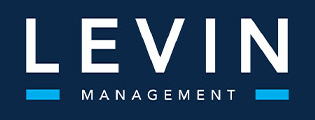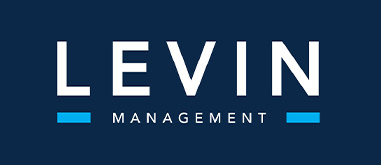Short-Term Leases Have Gone Beyond a Retail Real Estate Trend
It’s an established cycle. Halloween stores brimming with costumes, decorations and accessories spring up like pumpkin patches around Labor Day and then, as the winter holiday shopping season rolls in, they vanish from the mall or shopping center (to be replaced perhaps by a temporary crafts boutique, a toy store or a marketer of calendars). Second only to Christmas as America’s favorite holiday, Halloween is a potent driver of retail sales. According to projections of the National Retail Federation, 2014’s Halloween shopper will spend an average of $77.52 and total spending will reach $7.4 billion, up from $6.9 billion last year. Behind that upward spike is a strengthening economy and the fact that October 31 falls on a Friday, giving Halloween revelers a full weekend to celebrate.
Levin Management’s temporary tenants – Halloween City in Paramus Place and Clifton Plaza and Masquerade at Brunswick Shopping Center – are in holiday sales mode. Like all tenants that are leasing a retail space on a short-term basis, these popular, heavily promoted specialty stores boost traffic and sales for the entire shopping center in which they are located. And although Halloween stores, which have grown in numbers by 30 percent over the last four years, are the heavyweights of holiday pop-ups, Christmas, Valentine’s Day and Fourth of July stores are gaining in popularity.
A Retail Real Estate Trend No More: Pop-Ups are Here to Stay
Now a well-established part of the U.S. retail scene, pop-ups began life in the early 90s in densely populated urban centers like New York, Tokyo, London and Los Angeles, providing emerging brands the opportunity to access consumers in high-rent retail zones for a limited period, usually less than three months. The concept proved a retail real estate win-win for budget-conscious renters and property owners with vacancies to fill.
By the end of the decade, big players began to realize the value of leasing a retail space short-term – for market testing, promotions and new product introductions, as well as for moving merchandise, offering seasonal goods and services, or penetrating specific geographic areas. Target, with 1,000-plus stores in the U.S., leased a 1,500-square foot pop-up in Rockefeller Center to launch its Isaac Mizrahi line in 2002. Toys “R” Us set the pace in 2010, supplementing its 800-plus stores and its e-commerce sites by leasing 600 pop-ups across the U.S. during the Christmas season. Since that time, such diverse companies as HBO, eBay, United Healthcare, Song Airlines, H&R Block and even Microsoft have taken the pop-up route into targeted markets.
Online Giants Choose Pop-Ups to Test Brick and Mortar Retailing, Reach New Markets
Following the lead of fellow online retail pioneer eBay, the mighty Amazon announced it will enter the world of U.S. pop-ups on October 22, with the opening of a store in the Westfield San Francisco Center. Amazon had previously leased a pop-up in China. The new store will offer Amazon’s latest branded electronic products, including FireTV, Fire Phone, Fire Tablets and the most recent version of the Kindle e-reader. The company has leased a Midtown Manhattan space as well, which is scheduled to open shortly.
Demand for Pop-Ups Generates a New Retail Estate Trend
Meet Storefront. Its twenty-something co-founder Tristan Pollock calls it “the Airbnb of retail,” and it is transforming the business of short-term commercial retail leasing. Through its website, TheStorefront.com, it connects owners of vacant space in San Francisco, Los Angeles, Chicago and New York, to individuals and companies shopping for pop-ups. Venues range from booth space at festivals and in transit stations to nooks in hotels or galleries to storefronts in high-end neighborhoods like New York’s Soho. Daily rates run from a few hundred dollars to upwards of $5,000. Tenants who have connected with properties through Storefront include online fashion retailers Indochino, Hatch, and Storenvy and artists like Kanye West, who marketed promotional merchandise from his Yeezus tour in a branded shop (daily rent $1,550) on New York’s Bowery. Unlike a booth at a concert venue, the shop, which was opened for the four days of the New York concerts, attracted media coverage and a stream of celebrity shoppers.
For its matching services, Storefront collects commissions in the 6-12 percent range, which includes general liability insurance. David Bell, professor of marketing at The Wharton School of the University of Pennsylvania, told The New York Times that Storefront is “like Airbnb, eBay and Uber rolled into one. It matches excess capacity with demand in an efficient, scalable way.” And that sounds like a retail real estate trend in the making.

